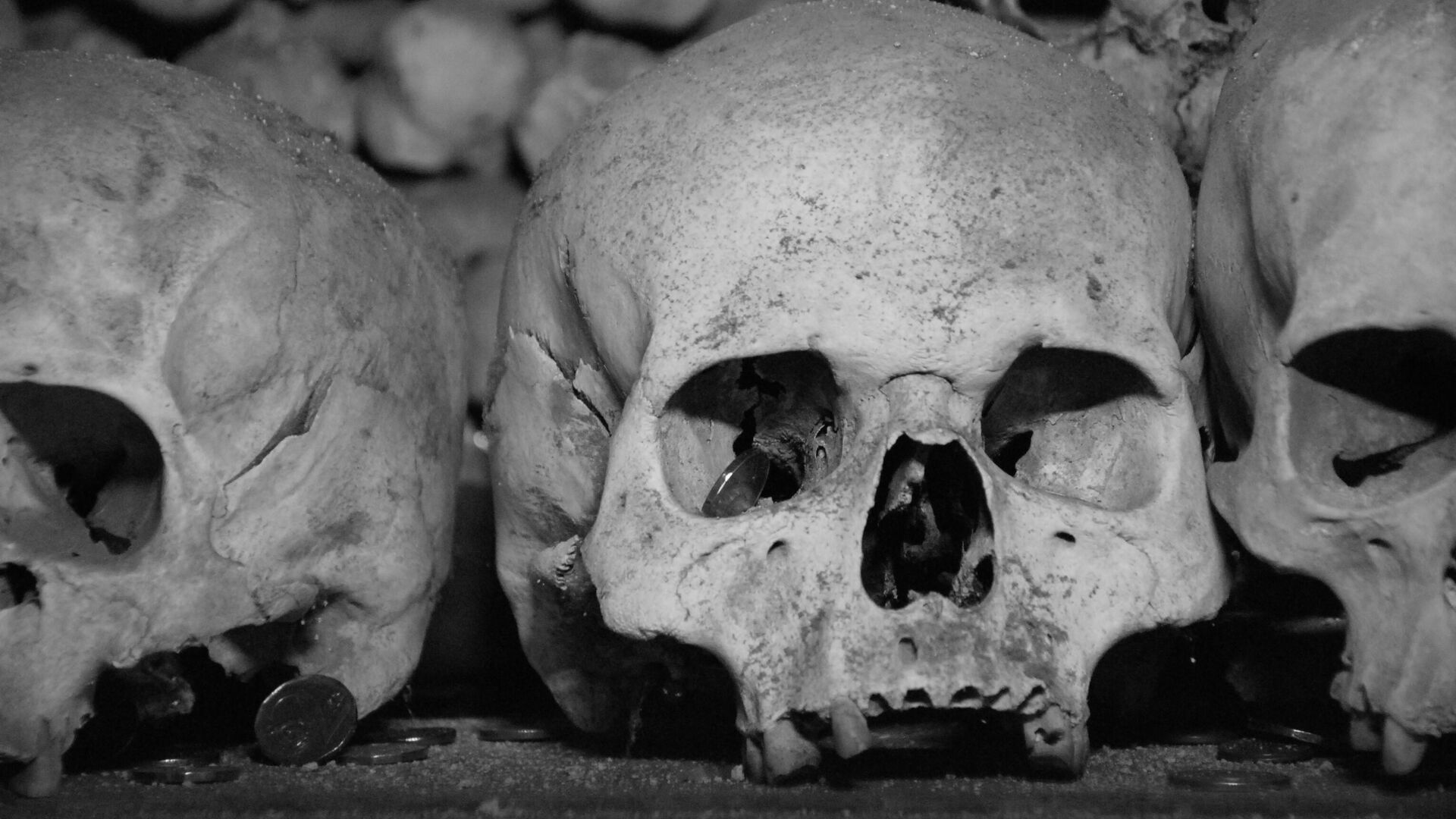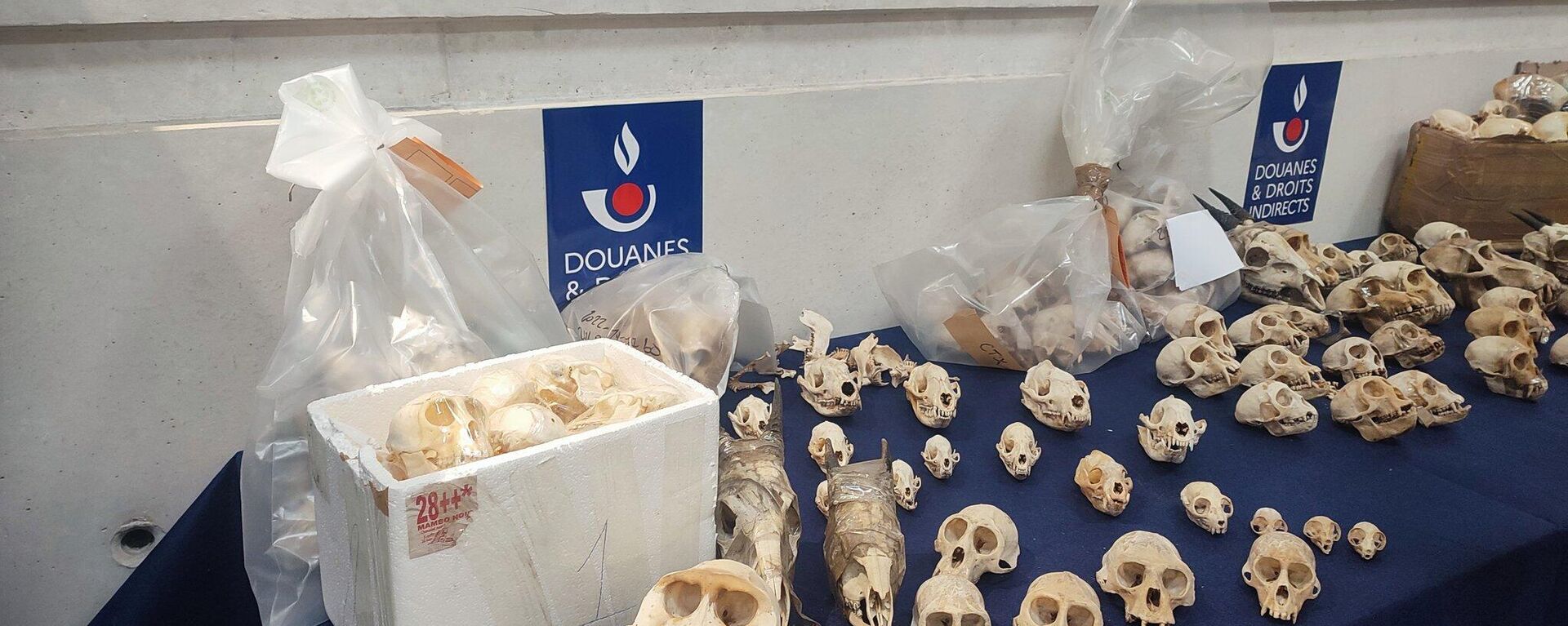https://en.sputniknews.africa/20231029/tanzanians-seek-skulls-of-their-ancestors-in-germany-to-return-home-media-1063172739.html
Tanzanians Seek Skulls of Their Ancestors in Germany to Return Home: Media
Tanzanians Seek Skulls of Their Ancestors in Germany to Return Home: Media
Sputnik Africa
In the Chagga culture of Tanzania, where the ancestors have their roots, the dead are supposed to be buried in the house so that they can continue to care for... 29.10.2023, Sputnik Africa
2023-10-29T15:50+0100
2023-10-29T15:50+0100
2023-10-29T15:51+0100
sub-saharan africa
tanzania
germany
europe
east africa
history
culture
https://cdn1.img.sputniknews.africa/img/07e7/0a/1d/1063174291_0:164:3059:1885_1920x0_80_0_0_6ba954e082e0179e19f06f7d5b16b8da.jpg
Isaria Anael Meli is searching for the skull of his grandfather, a Tanzanian chief allegedly hanged by German colonial authorities 123 years ago, to bring the remains back to the homeland, the British media reported.Mangi (meaning "king" in the Kichagga dialect) Meli was reportedly hanged in the Tanzanian village of Tsudunyi, near Kilimanjaro, along with 18 other chiefs and advisers, on charges of conspiring to attack German colonial forces.Media reported that while most of the torsos are believed to be buried in a mass grave in the village, their heads were removed at some point, packed up and shipped to the German capital.Mangi Meli was the chief of the Chagga ethnic group, one of the most famous in modern Tanzania. For the Chagga, the idea of the head being separated from the body and then taken out of the ground is deeply troubling.The case of Isaria Anael Meli is not the only one of its kind: the media also reported on Simulango Molelia, the grandson of another victim of the executions - Mangi Molelia and Zablon Ndesamburo Kiwelu, whose grandfather, Mchili Sindato Kiutesha Kiwelu, served as an advisor to Mangi Meli and was also hanged.Phrenology MaterialMuseums in Europe and North America amassed large collections of skulls and other human remains in the 19th and early 20th centuries. In part, this was due to the enormous interest in the now discredited science of phrenology, which was based on the idea that the basic characteristics of humans were reflected in the shape of their skulls. The Tanzanian victims of colonialism were not spared this history. As the media suggested, their skulls went from the private collection of German anthropologist Felix von Luschan to the American Museum of Natural History in New York. In 2010, the collection reportedly ended up at the Prussian Cultural Heritage Foundation in Berlin, but the documentation was lost.Then the descendants of the hanged men applied for a DNA test to determine their relationship to the skulls and rejoiced when the test identified the grandfathers Molelia and Kiwelu.Media reported that negotiations are underway between German and Tanzanian authorities to facilitate the return of the skulls.However, Isaria Anael Meli - the grandson of Manga Meli, whose skull was never found - was left frustrated after decades of searching and convinced that it was still somewhere in a museum collection.
https://en.sputniknews.africa/20230922/french-customs-confiscate-nearly-400-skulls-of-protected-monkeys-trafficked-from-cameroon-1062276633.html
tanzania
germany
europe
east africa
Sputnik Africa
feedback@sputniknews.com
+74956456601
MIA „Rossiya Segodnya“
2023
Maxim Grishenkin
https://cdn1.img.sputniknews.africa/img/07e7/0a/17/1063018107_0:0:1104:1103_100x100_80_0_0_03090c85a11f5d2e8a19cf1d989443c9.jpg
Maxim Grishenkin
https://cdn1.img.sputniknews.africa/img/07e7/0a/17/1063018107_0:0:1104:1103_100x100_80_0_0_03090c85a11f5d2e8a19cf1d989443c9.jpg
News
en_EN
Sputnik Africa
feedback@sputniknews.com
+74956456601
MIA „Rossiya Segodnya“
Sputnik Africa
feedback@sputniknews.com
+74956456601
MIA „Rossiya Segodnya“
Maxim Grishenkin
https://cdn1.img.sputniknews.africa/img/07e7/0a/17/1063018107_0:0:1104:1103_100x100_80_0_0_03090c85a11f5d2e8a19cf1d989443c9.jpg
tanzania, germany, europe, east africa, history, culture
tanzania, germany, europe, east africa, history, culture
Tanzanians Seek Skulls of Their Ancestors in Germany to Return Home: Media
15:50 29.10.2023 (Updated: 15:51 29.10.2023) In the Chagga culture of Tanzania, where the ancestors have their roots, the dead are supposed to be buried in the house so that they can continue to care for the living. Failure to do so is believed to have repercussions for generations to come.
Isaria Anael Meli is searching for the skull of his grandfather, a Tanzanian chief allegedly hanged by German colonial authorities 123 years ago, to bring the remains back to the homeland, the British media reported.
Mangi (meaning "king" in the Kichagga dialect) Meli was reportedly hanged in the Tanzanian village of Tsudunyi, near Kilimanjaro, along with 18 other chiefs and advisers, on charges of conspiring to attack German colonial forces.
Isaria Anael Meli, 92, was told of his grandfather's murder by his grandmother, who he says was forced to watch the execution. Meli also explained that the chief came to him at night and told him he would return one day.
Media reported that while most of the torsos
are believed to be buried in a mass grave in the village, their heads were removed at some point, packed up and shipped to the German capital.
Mangi Meli was the chief of the Chagga ethnic group, one of the most famous in modern Tanzania. For the Chagga, the idea of the head being separated from the body and then taken out of the ground is deeply troubling.
The case of Isaria Anael Meli is not the only one of its kind: the media also reported on Simulango Molelia, the grandson of another victim of the executions - Mangi Molelia and Zablon Ndesamburo Kiwelu, whose grandfather, Mchili Sindato Kiutesha Kiwelu, served as an advisor to Mangi Meli and was also hanged.
Museums in Europe and North America amassed
large collections of skulls and other human remains in the 19th and early 20th centuries. In part, this was due to the enormous interest in the now discredited science of phrenology, which was based on the idea that the basic characteristics of humans were reflected in the shape of their skulls.
In some cases, it took on a racist element as researchers attempted to establish racial hierarchies, with the result that people began collecting skulls from all over the world.
The Tanzanian victims of colonialism were not spared this history. As the media suggested, their skulls went from the private collection of German anthropologist Felix von Luschan to the American Museum of Natural History in New York. In 2010, the collection reportedly ended up at the Prussian Cultural Heritage Foundation in Berlin, but the documentation was lost.
Then the descendants of the hanged men applied for a DNA test to determine their relationship to the skulls and rejoiced when the
test identified the grandfathers Molelia and Kiwelu.
Media reported that negotiations are underway between German and Tanzanian authorities to facilitate the return of the skulls.
However, Isaria Anael Meli - the grandson of Manga Meli, whose skull was never found - was left frustrated after decades of searching and convinced that it was still somewhere in a museum collection.



